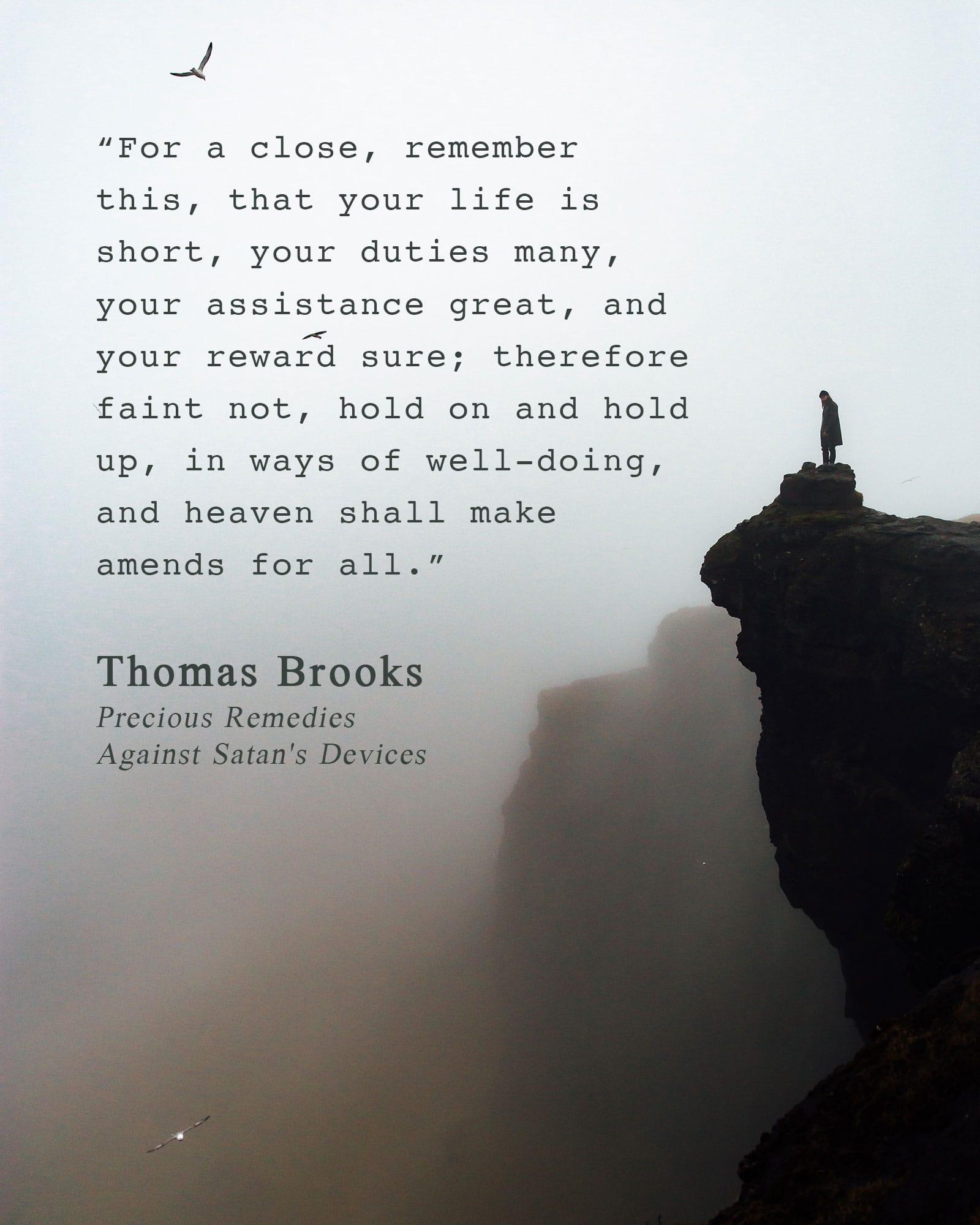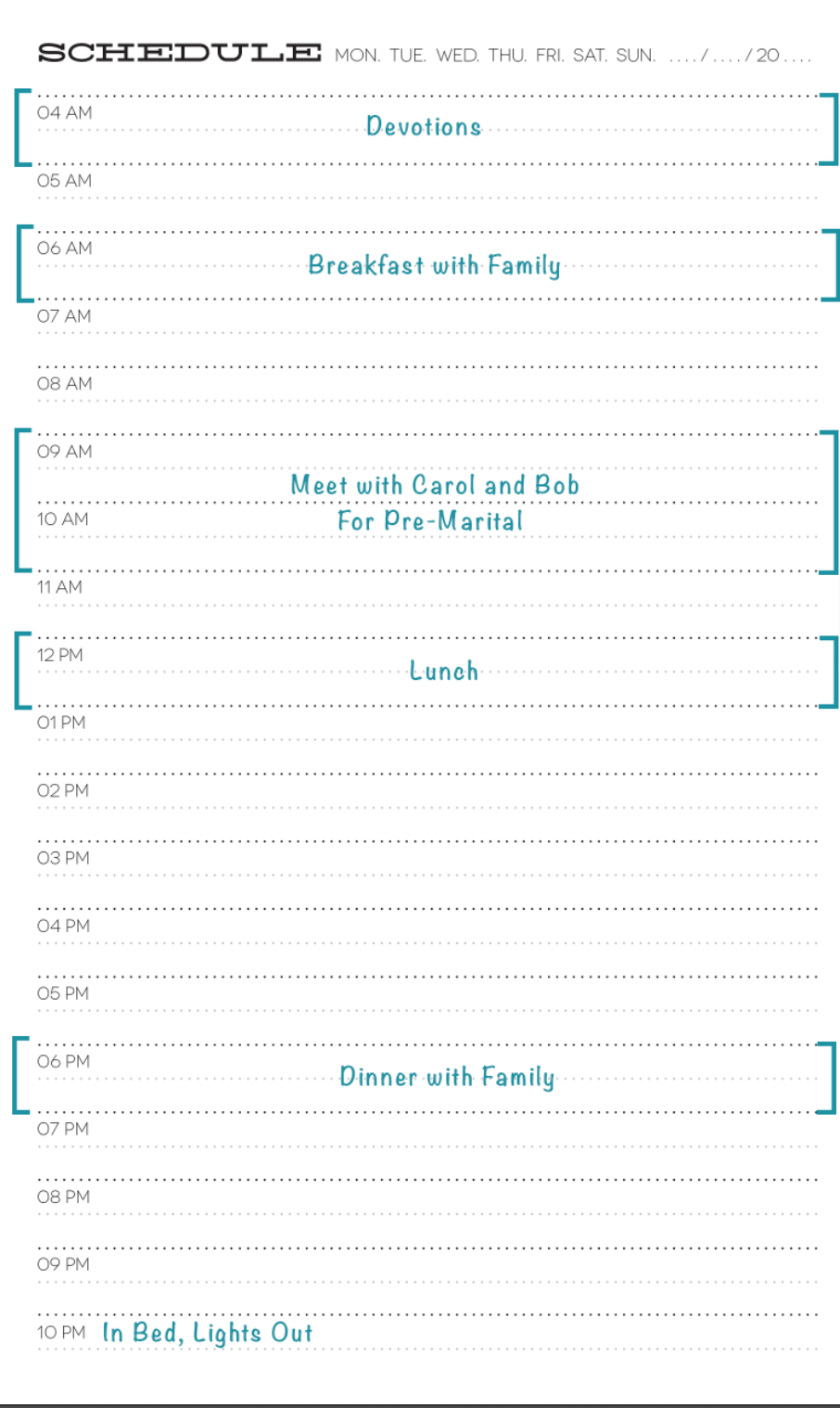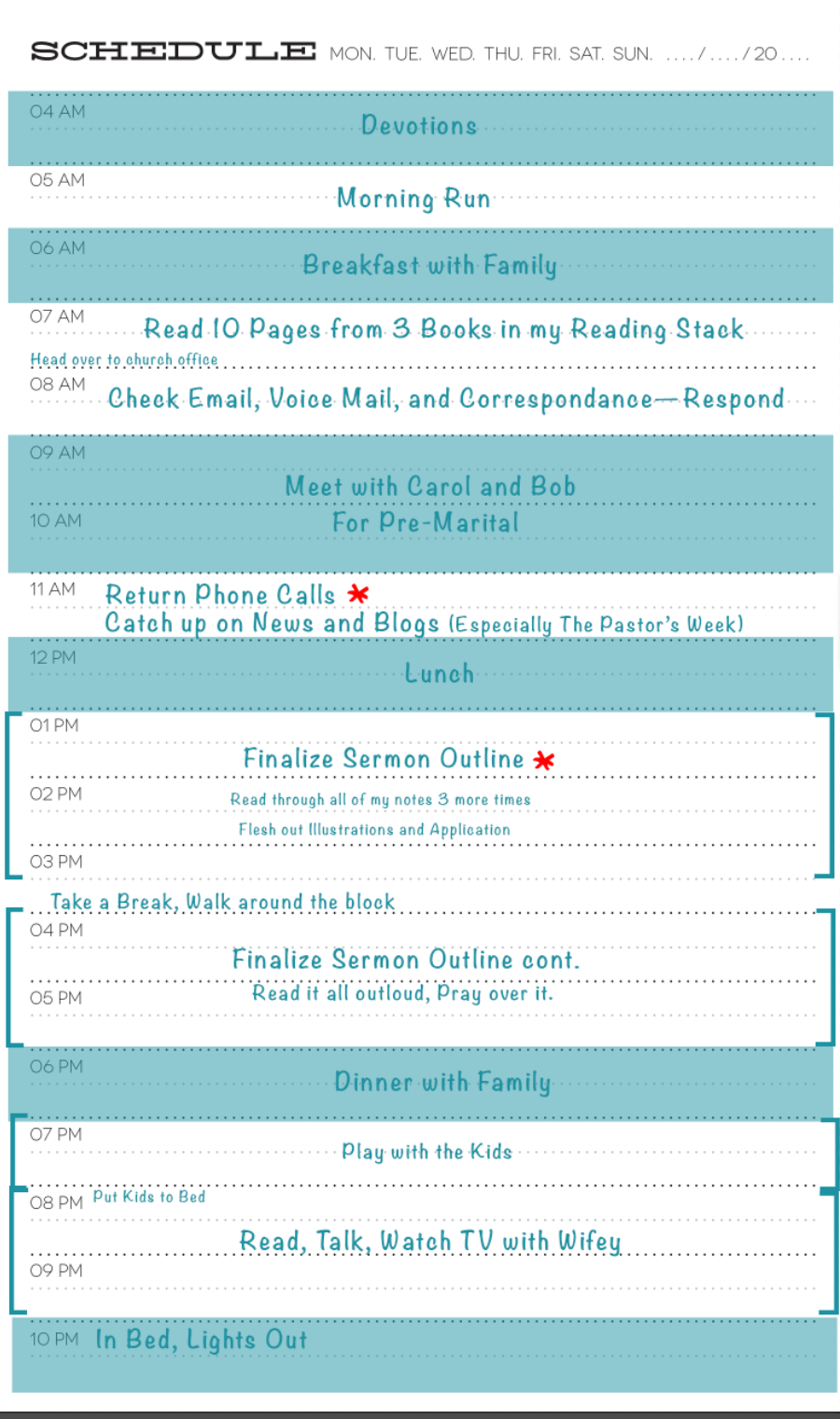
Have you ever sat down at your desk with a million things that need to get done, but you just can't figure out where to start? I know I have. But there is a very simple tool for just that problem.
You probably already keep a calendar, but unless there is an appointment or a meeting involving another party, you likely don't schedule how you will spend the rest of the hours in your day. But what if you set an agenda for how you would spend every half-hour of your day? Sound like a waste of time?
Think about this way.
If you knew you didn't have a moment to waste, would it limit distractions? Would you fritter away fewer hours checking Facebook? Could it save you from mindlessly saying "yes" to time-wasting meetings you don't really need to be a part of? If you could redeem even just 2 extra hours a day, imagine how much more you could accomplish! That's the value of time blocking.
How To Block It Out So You Can Knock It Out
So much of ministry life is self-directed. And I realized a few years ago that I needed a way to keep myself on track during the day. But I searched in vain for a digital tool that would help me block out my time. Everything I tried was extremely cumbersome. I spent so long trying to utilize the tools that instead of saving time I was losing it.
So, I ditched the digital and returned to pen and paper for time blocking. But what to use?
Day-Timer™ and FranklinCovey™ make some good analog tools for this, but I found myself desiring something a bit more. . . Christian, shall we say?
So, here's a simple system I have been working on developing with some friends. At the end of this guide, there is a free printable PDF so you can try it yourself.
Step by Step
1. Spend time with the Lord
Your daily schedule is a function of your priorities, and the only way to reorient priorities to God's each day is to first meet with Him in Bible reading and prayer.

2. Establish Your Top Goals For The Day
There's a lot you can do today, but what should you do today?
I find that picking the three most important tasks for the day helps me tremendously in gaining focus. We tend to overestimate what we can get done in a single day, and then end up feeling defeated when we don't tick everything off our to-do lists. Just pick a few biggies to focus on and put them down first, so you know you're making time for them. We will schedule everything else around these.

Now, you're ready to start blocking out the day.
3. Schedule The Non-Negotiables
Here are some glad tidings: Most of the work of time-blocking is already done for you.
Sleep, meals, meetings, and appointments are going to fill up the biggest portions of your day. So, block out those large chunks first, and let's see what we're working with!

Okay, now we're making progress. The rest of those open time blocks are yours for the planning!
4. Block Out The Rest of Your Day
Now, block out the remaining time you have some control over. What are you going to accomplish in that 3-hour window after your lunch appointment, but before you go home?
Remember your top 3 goals for the day? Let's plop those on there first (I've indicated mine with a red asterisk).

A couple notes about this example:
- First, this is my plan for an ideal day. Everything will probably not go as planned.
- Second, notice how few things I actually have time for once the non-negotiables are on there.
- Third, at 7 AM I read 10 pages from 3 books. That doesn't seem like much, but after a week that's 210 pages. After a month that's 900 pages of reading! Time blocking dominates on chip-away projects like reading or writing. You'd be surprised what you can accomplish in a few months with just one dedicated hour per day.
- Fourth, notice I only put two of my three goals on there. I left out "Map out calendar of events until Christmas" because there just wasn't enough time. That's okay, it's not super urgent. I'll just make sure to find a better time-slot for it tomorrow. Besides, it's waaaay too early to be thinking about Christmas. I'm still deciding on my costume for Reformation day (Should I go as monk Luther or bearded, disheveled Luther hiding out in Wartburg castle? I feel like the second one will require too much explanation, maybe?).
Hang on. One more thing! This part is important: Block out the ENTIRE day, including your free-time.
Depending on your personality, the time slots without jobs assigned to them will either be wasted (guilty!), or you will work right through the day without taking any breaks. That's a sure way to drive yourself into a wall after just a few weeks. Schedule. Your. Free time.
Personally, I tend to waste unplanned time reading news articles about things I don't care about, like tide pools on the Pacific coast. But if I schedule in a 15-minute walk after lunch, I get a rejuvenating break and I'm not stressing about beached crustaceans.
5. Pray for your day.
It is presumptuous to make plans irrespective of the Lord's sovereignty over our lives (James 4:13–16). So, commit your day to the Lord and ask that He would enable you to glorify Him, edify Christ's church, and to be flexible when ministry emergencies despoil you of your perfectly planned day.
Conclusion
Organizing your schedule and be disciplined with every moment which God has given you is an act of stewardship. Don't get OCD about it, but be wise. Don't just cross your fingers and hope you'll get everything done. Good stewardship is planned stewardship, be it with money or time.
Ready to take the next step with your productivity?
- Get the Book → Grab a copy of Redeeming Productivity: Getting More Done for the Glory of God
- Join the Academy → Get access to all of our courses, workshops, private community, planner, and more
- Use the Planner → The all-in-one productivity system designed for Christians







